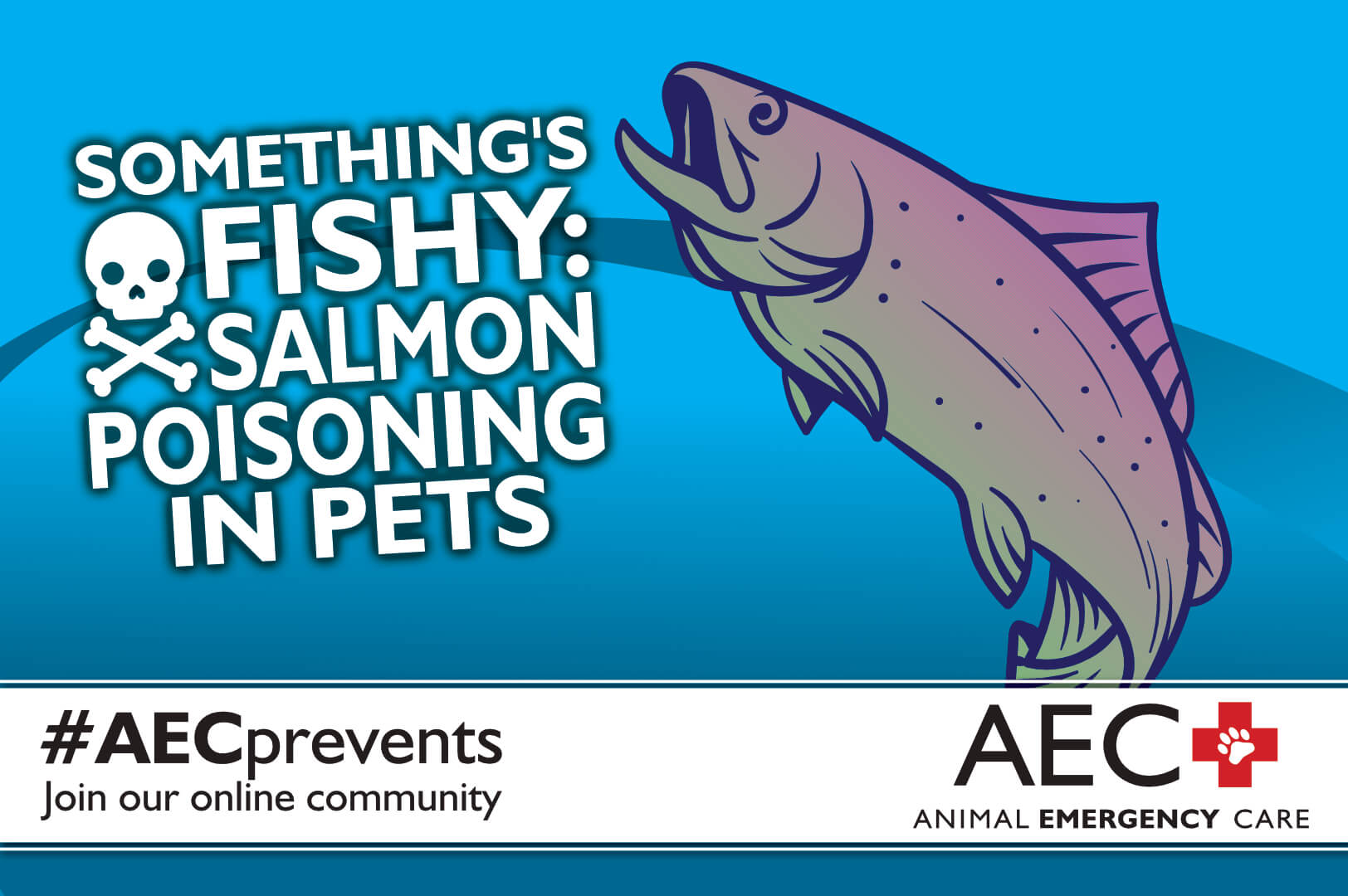Summer is quickly approaching and many pet owners will be enjoying outdoor hiking and fishing adventures with their favorite canine companions. Pets are family and including them on outdoor expeditions is a great way to mentally and physically stimulate your pet, as well as strengthen your bond. However, exposure to the elements can be dangerous to pets especially if they eat raw fish or other non-pet food items. Our Animal Emergency Care team wants to ensure your pets are safe while enjoying nature with you so we describe the signs, treatment, and prevention of salmon poisoning, a dangerous infection.
What is salmon poisoning in pets?
Salmon poisoning, which is also referred to as salmon poisoning disease (SPD), is an acute infectious disease affecting dogs and other canid species caused by a rickettsial bacteria found in parasitic flukes, or flatworms. This disease is found only in the Pacific Northwest region of the United States. SPD is a misleading name because no toxin is involved in this disease. Rather, infection occurs when a dog ingests a raw trout, salmon, or Pacific salamander that contains flukes infected with the Neorickettsia helminthoeca rickettsial organism. SPD can be complicated when dogs are infected with a secondary bacterium, Neorickettsia elokominica, which may cause a less severe illness and is referred to as Elokomin fluke fever. Dog-to-dog transmission of these bacteria is rare.
Salmon poisoning signs in pets
Dogs who ingest raw fish infected with fluke larvae that do not contain rickettsia bacteria may show minor gastrointestinal signs such as diarrhea. Dogs who are infected with the Elokomin fluke fever bacterium may experience a milder infection and enlarged lymph nodes. Your dog will usually show signs in 10 days if they ingest a fish containing flukes infected with the SPD bacterium, but infection signs may not be present for 33 days in some cases. Signs may include:
- Fever, followed by hypothermia
- Depression
- Decreased appetite
- Nausea and vomiting
- Bloody diarrhea
- Dehydration
- Weight loss
- Nasal or eye discharge
- Enlarged lymph nodes
- Seizures
Salmon poisoning diagnosis and treatment in pets
Bring your dog for immediate veterinary care if they have ingested a raw fish or have SPD signs because SPD is fatal in 90% of pets who do not receive treatment. However, dogs who receive immediate veterinary care have a good prognosis. Diagnostic tests including a fecal examination to look for fluke eggs, serologic tests, a DNA PCR test, and a lymph node cytology exam may be recommended to confirm a SPD diagnosis. Your veterinarian may recommend a complete blood count, electrolyte test, and serum biochemistry test to rule out any concurrent or underlying medical problems. Dogs who are infected will require antibiotics. Additional treatments may include:
- Intravenous fluids to correct dehydration and electrolyte imbalances
- Gastrointestinal protectants
- Anti-nausea medication
- Specialized warming pads
- Deworming medication
- Blood transfusions
- Specialized diet
Payment options for a pet’s salmon poisoning treatment
Pets undergoing SPD treatment may require an extended hospital stay and several checkups which can be expensive. Consider purchasing a health insurance plan like Trupanion when your dog is young to ensure funds are available for such long-term care. Trupanion can pay your veterinary clinic directly which eliminates the need to submit paperwork and wait for reimbursements. Other financial options available to cover treatment costs include:
- Care Credit — Care Credit offers specialized credit cards that can help delay interest payments.
- Scratch Pay — This service provides fast flexible payment options with variable interest rates depending on an individual’s credit.
- Pet health savings account — Many financial institutions offer incentives for opening pet health savings accounts which ensure you have funds budgeted for your pet’s medical care.
- Short-term loans — These loans often have high interest rates but can be used as a last resort.
Salmon poisoning prevention in pets
Ensure you prevent your dog from consuming Pacific salamanders in addition to raw salmon, trout, steelhead, or similar freshwater fish. Secure your pet and closely monitor them when they are near or in any fresh water streams to prevent an accidental ingestion of infected fish. Additionally, prevent your dog from contacting any trash cans which may contain raw fish.
Salmon disease poisoning is fatal without treatment. If you observe your dog ingesting raw fish or if they are showing SPD signs immediately bring them to Animal Emergency Care or call your family veterinarian. #AECprevents
Sources:
https://veterinarypartner.vin.com/default.aspx?pid=19239&id=4952985


